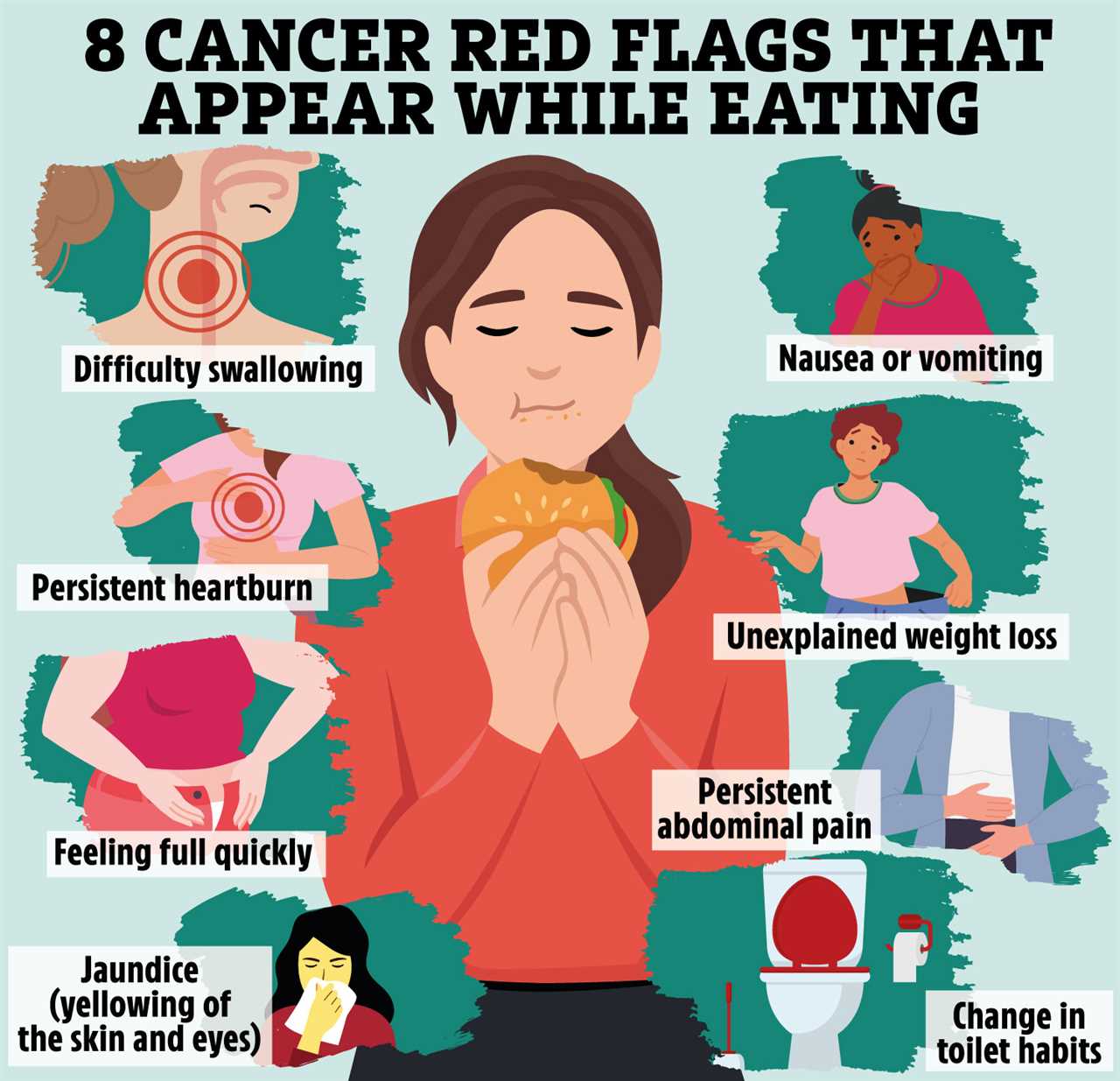
Early Detection is Key
Cancer symptoms can be tricky to identify, especially since they can mimic other conditions and often manifest internally. However, catching symptoms early is crucial for effective treatment. Surprisingly, some signs of certain cancers may show up during your meals throughout the day.
Spotting the Signs
Pharmacist ambassador Ade Williams sheds light on common symptoms to watch out for during mealtimes, potential misinterpretations, and the types of cancers they could indicate.
1. Difficulty Swallowing
Experiencing pain or discomfort while swallowing and feeling like food is stuck in your throat or chest could be a red flag for oesophageal, throat, or stomach cancer.
2. Persistent Indigestion or Heartburn
Burning sensations in the chest or stomach, along with bloating and frequent burping, might not just be acid reflux – they could signal stomach, oesophageal, or pancreatic cancer.

3. Feeling Full Quickly
If you feel full after eating very little, it could be an early symptom of pancreatic, ovarian, or stomach cancer, rather than just IBS or poor appetite.
4. Nausea or Vomiting
Frequent nausea, vomiting after meals, or vomiting blood should not be ignored, as they could be early signs of pancreatic, stomach, or brain cancer.
5. Unexplained Weight Loss
Losing weight without trying, despite a normal or reduced appetite, could indicate various cancers like stomach, pancreatic, oesophageal, or lung cancer.
6. Abdominal Pain or Discomfort
Ongoing or severe abdominal pain, especially after eating, could be more than just gallstones or IBS – it could be a symptom of pancreatic, liver, stomach, or bowel cancer.
7. Change in Bowel Habits
Diarrhoea, constipation, or changes in stool consistency, particularly after eating, could be early indicators of pancreatic, bowel, or stomach cancer.
8. Jaundice
Keep an eye out for yellowing skin and eyes, dark urine, and pale stools after fatty meals, as they could be early signs of pancreatic, liver, or bile duct cancer.
Don't Delay, Get Checked
While these symptoms can be caused by non-cancerous conditions like acid reflux or stress, it's essential not to dismiss them. Ade Williams advises seeking advice from a healthcare professional if symptoms persist for more than 10 days. Early detection is key, so don't hesitate to book an appointment with your GP if you suspect any signs of cancer.






